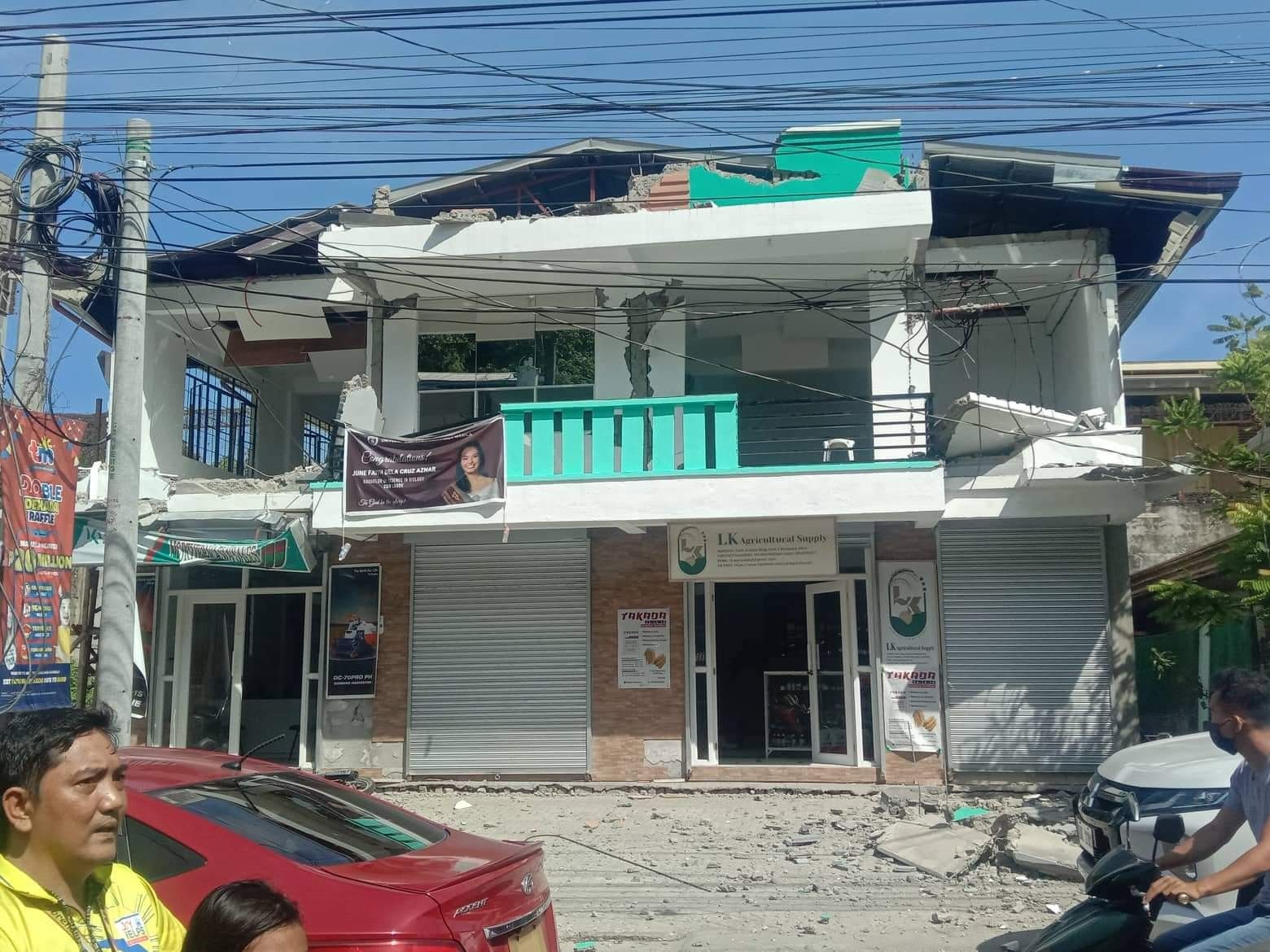Damage to households, establishments reported after Abra quake

MANILA, Philippines (Update 3, 3:38 p.m.) — A 7.0 magnitude quake that struck Abra on Wednesday triggered landslides, damaged roads and caused some structures—including centuries-old churches and buildings—to collapse.
In a press briefing at Malacañang Palace, Interior Secretary Benhur Abalos said the shallow tectonic quake greatly affected Ilocos region, Cagayan Valley and the Cordillera Administrative Region.
Abalos reported that 173 buildings were damaged by the earthquake. He added there were 58 reported landslides, of which 31 happened in Abra, the epicenter of the earthquake.
The quake also caused damage to bridges and roads, and power interruptions.
In a statement Wednesday morning, the National Disaster Risk Reduction and Management Council said it has received “preliminary information” on the damage caused by the earthquake that hit Abra.
"As of this time the local DRRM officers are on the scene to assess the impact of the earthquake. So far, we have seen photos of damage but these are to be validated by the local counterparts. All affected local government units are also on the scene to assist affected populations," NDRRMC spokesperson Mark Timbal told reporters in a Viber message.
Timbal added later Wednesday that some areas in Regions 1, 2, NCR and CAR have sustained damage to public and private structures. Some areas in the Cordilleras also have no power and internet, he said.
"We have sufficient relief stockpiles prepositioned in these regions to support local relief efforts undertaken by the LGUs," Timbal also said.
According to state seismologists, the earthquake, classified as major, was caused by the movement of the Abra River Fault.
Four people were reported dead and 60 others were injured, Abalos also said.
‘Strongest in recent years’
In a privilege speech, Rep. Ching Bernos (Abra) said the earthquake was the strongest to have impacted the Cordillera region since the devastating 1990 earthquake in Baguio that killed over 1,600 people.
“Windows of homes were shattered, while walls of establishments showed cracks. Many school buildings that will be used when face-to-face classes open next month and health facilities like rural health units, responsible for first-level response in the middle of the COVID-19 pandemic, were also damaged,” Bernos said.
Even the Abra Provincial Hospital showed signs of damage, prompting patients to evacuate.
“Moreover, communication lines are unstable, and Abreños from other places find it difficult to reach their family members. Many people were also stranded along major roads and bridges in the area of responsibility as the earthquake have also destroyed the roads and bridges, and made many of them unpassable,” Bernos added.
Philstar.com reached out to Elmer Bersamin, the Provincial Disaster Risk Reduction and Management Officer of Abra. This story will be updated with his response.
The quake also destroyed the Vigan Cathedral and heritage houses in the city’s Calle Crisologo, as well as bell towers in nearby Bantay town in Ilocos Sur and in Laoag, Ilocos Norte.
“The reason why there was significant damage in Vigan is because the foundation of the city is essentially sandy because of the big river that would flood the area from time to time. So there was amplification of shaking,” Phivolcs director Renato Solidum said.
Metro Manila felt quake
No damage has been reported yet in the National Capital Region, while the earthquake was "felt" in Calabarzon.
The Philippine National Police said it was also in the process of collating information on the ground from areas hardly hit by the earthquake.
"As of now, our priority is to respond to various reports regarding those individuals who are affected by the effects of the strong quake," Police Brig. Gen. Roderick Alba, PNP information officer said in a statement
In Metro Manila, the LRT-1, LRT-2, and MRT-3 rail lines all temporarily suspended operations to check for damage and conduct maintenance.
Phivolcs assured the public that the earthquake poses no tsunami threat to the Philippines. — with reports from Xave Gregorio
- Latest
- Trending





























